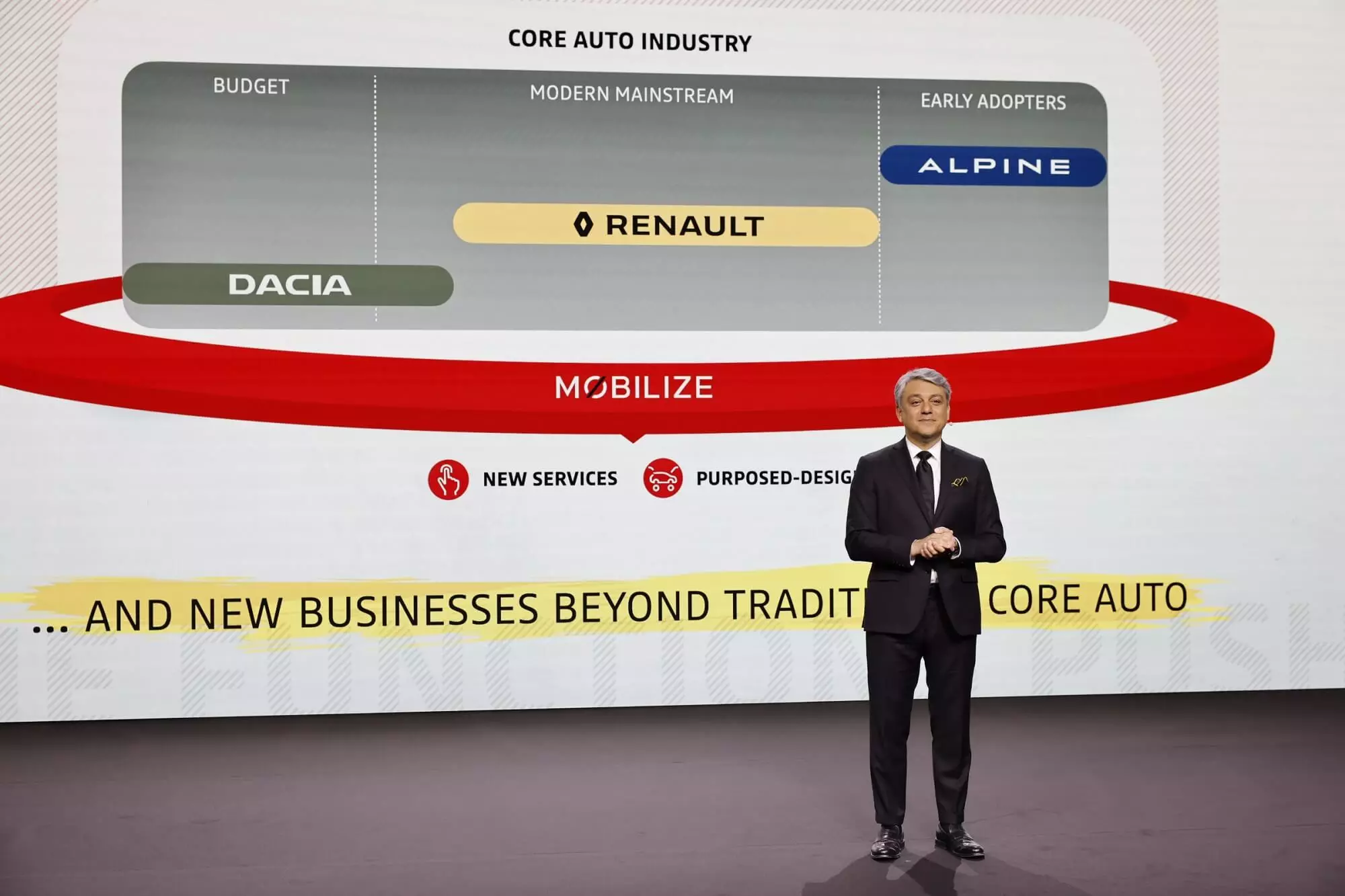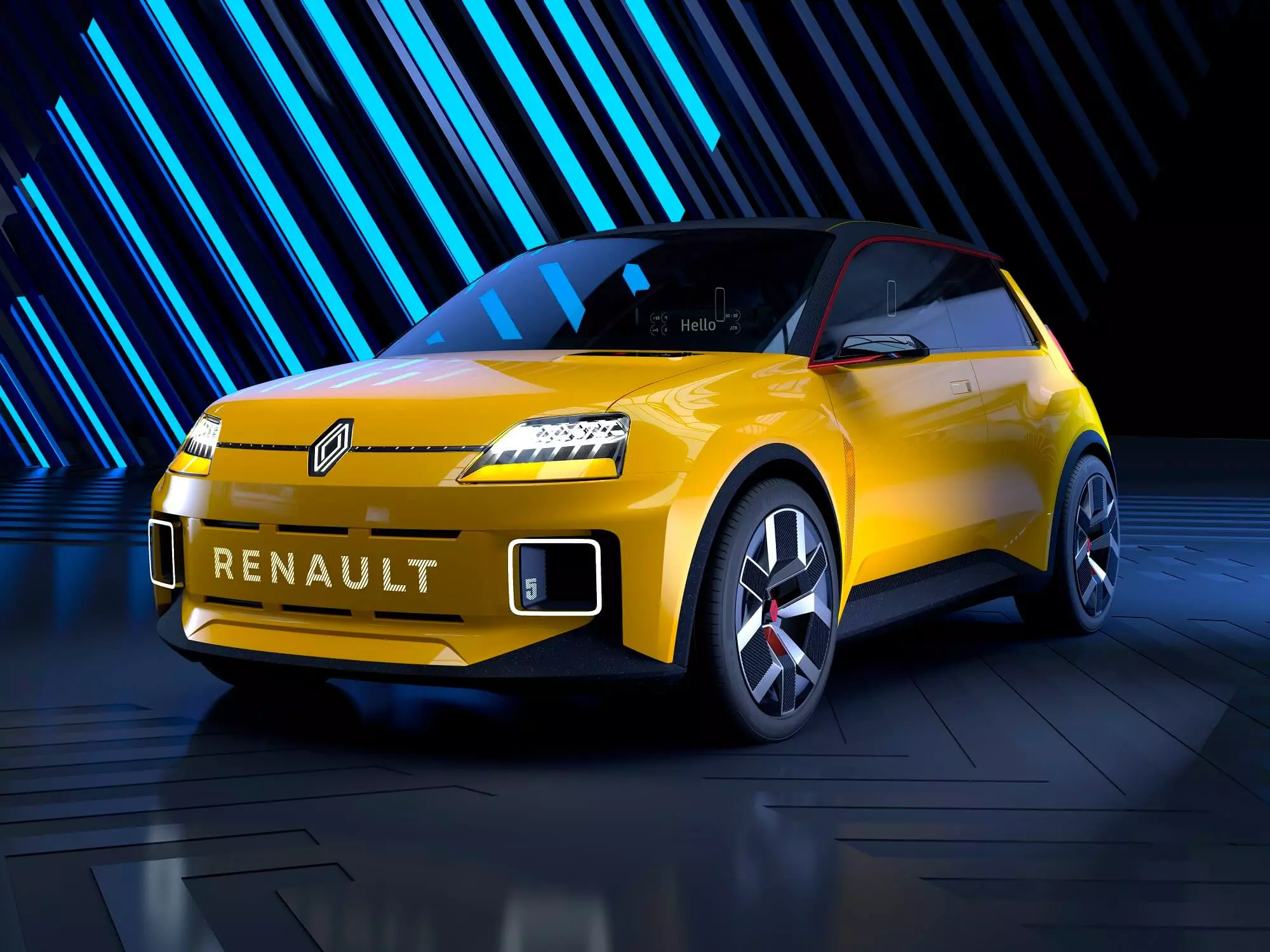It's called “Renaulution” and it's the Renault Group's new strategic plan that aims to reorient the group's strategy towards profitability rather than market share or absolute sales volume.
The plan is divided into three phases called Resurrection, Renewal and Revolution:
- Resurrection — focuses on recovering profit margins and creating liquidity, extending to 2023;
- Renovation — it follows on from the previous one and aims to bring “the renewal and enrichment of the ranges that contribute to the profitability of the brands”;
- Revolution — starts in 2025 and aims to transform the Group's economic model, making it migrate to technology, energy and mobility.
Luca de Meo, CEO of the Renault GroupThe Renaulution plan consists of guiding the entire company from volumes to value creation. More than a recovery, it is a profound transformation of our business model.
Focus? the profits
Focused on restoring the Renault Group's competitiveness, the Renaulution plan focuses the group on creating value.
Subscribe to our newsletter
What does this mean? It simply means that performance will no longer be measured based on market shares or sales volume, but rather on profitability, liquidity generation and investment effectiveness.

News will not be lacking
Now, bearing in mind that a car manufacturer lives by… producing and selling cars, it goes without saying that a large part of this plan depends on the launch of new models.
Thus, by 2025 the brands that make up the Renault Group will launch no less than 24 new models. Of these, half will belong to segments C and D and at least 10 of them will be 100% electrical.

But there is more. It is necessary to reduce costs — as announced in another specific plan for this purpose. To this end, the Renault Group plans to reduce the number of platforms from six to just three (80% of the Group's volumes are based on three Alliance platforms) and powertrains (from eight to four families).
In addition, all models to be launched that use existing platforms will reach the market in less than three years and the industrial capacity of the group will be reduced from four million units (in 2019) to 3.1 million units in 2025.
The Renault Group also intends to focus on markets with the highest profit margins and impose strict cost discipline, reducing fixed costs by €2.5 billion by 2023 and by €3 billion by 2025.
Finally, the Renaulution plan also provides for the reduction of investments and expenses in the area of research and development, from 10% of the turnover to less than 8% in 2025.
Luca de Meo, CEO of the Renault GroupWe established solid, sound foundations, streamlined our operations starting in engineering, scaled-down where necessary, and reallocated resources to products and technologies with strong potential. This improved efficiency will fuel our future range of products: technological, electrified and competitive.

How is competitiveness restored?
In order to restore the competitiveness of the Renault Group, the plan presented today begins by shifting the burden of managing its own profitability to each brand. At the same time, it puts engineering at the forefront, giving it responsibility for areas such as competitiveness, costs and time to market.
Finally, still in the chapter on restoring competitiveness, the Renault Group wants to:
- improve engineering and production efficiency with the aim of reducing fixed costs and improving variable costs globally;
- take advantage of the Group's current industrial assets and leadership in electric vehicles on the European continent;
- take advantage of the Renault-Nissan-Mitsubishi Alliance to increase its capacity in the development of products, activities and technologies;
- speed up mobility services, energy services and data services;
- improve profitability across four different business units. These will be “based on the brands, responsible for their activities, and focused on the customers and the markets where they operate”.
With this plan, the Renault Group plans to ensure lasting profitability while at the same time seeking to fulfill its commitment to achieving carbon neutrality in Europe by 2050.
About this plan, Luca de Meo, CEO of the Renault Group, said: “We will go from an automobile company that uses technology, to a technological company that uses cars, from which at least 20% of revenues, by 2030, will originate in services, data, and energy trading”.
